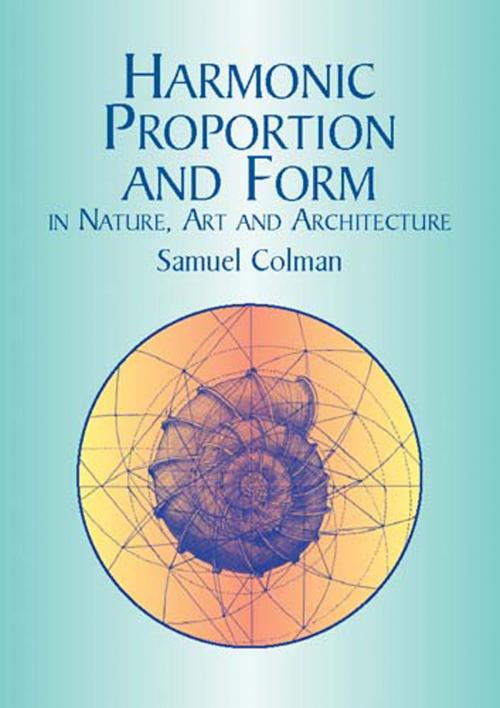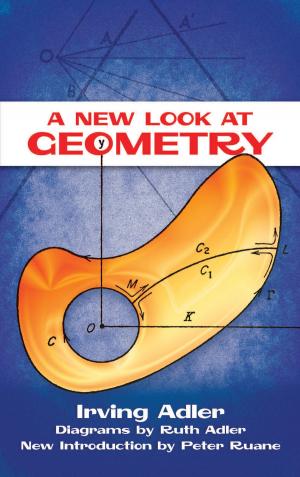Harmonic Proportion and Form in Nature, Art and Architecture
Nonfiction, Science & Nature, Science, Earth Sciences, Art & Architecture, General Art| Author: | Samuel Colman | ISBN: | 9780486162195 |
| Publisher: | Dover Publications | Publication: | January 23, 2013 |
| Imprint: | Dover Publications | Language: | English |
| Author: | Samuel Colman |
| ISBN: | 9780486162195 |
| Publisher: | Dover Publications |
| Publication: | January 23, 2013 |
| Imprint: | Dover Publications |
| Language: | English |
A treatise on the laws governing proportional form in both nature and the arts and sciences, this well-illustrated volume amply demonstrates how a design's geometrical construction can captivate both the eye and the mind. Flowers, shells, and other natural organisms appear here, along with artistic creations, in a mathematical study of the similarity of their constructive principles. These principles, in turn, are the fundamental elements by which nature creates harmony.
The author, Samuel Colman (1832–1920), was a prominent member of the Hudson River School of painters ("Storm King on the Hudson," his 1866 oil on canvas, is one of his best-known works), and an embodiment through his life and work of the school's celebration of nature through art. As an activist in the politics of art, Colman helped form the Society of American Artists as well as the American Society of Painters in Water Colors, a relatively new medium at the time. He was also a teacher and associate of Louis Comfort Tiffany; in 1879, the two joined forces to establish an interior design firm that included Mark Twain among its clientele.
This handsome and provocative volume is enhanced by 302 drawings by the author that complement and amplify each subject area discussed. It also includes an important Mathematical Analysis by the editor, C. Arthur Coan. As a multifaceted study, this book will find an audience among artists and philosophers, as well as scientists and mathematicians.
A treatise on the laws governing proportional form in both nature and the arts and sciences, this well-illustrated volume amply demonstrates how a design's geometrical construction can captivate both the eye and the mind. Flowers, shells, and other natural organisms appear here, along with artistic creations, in a mathematical study of the similarity of their constructive principles. These principles, in turn, are the fundamental elements by which nature creates harmony.
The author, Samuel Colman (1832–1920), was a prominent member of the Hudson River School of painters ("Storm King on the Hudson," his 1866 oil on canvas, is one of his best-known works), and an embodiment through his life and work of the school's celebration of nature through art. As an activist in the politics of art, Colman helped form the Society of American Artists as well as the American Society of Painters in Water Colors, a relatively new medium at the time. He was also a teacher and associate of Louis Comfort Tiffany; in 1879, the two joined forces to establish an interior design firm that included Mark Twain among its clientele.
This handsome and provocative volume is enhanced by 302 drawings by the author that complement and amplify each subject area discussed. It also includes an important Mathematical Analysis by the editor, C. Arthur Coan. As a multifaceted study, this book will find an audience among artists and philosophers, as well as scientists and mathematicians.















